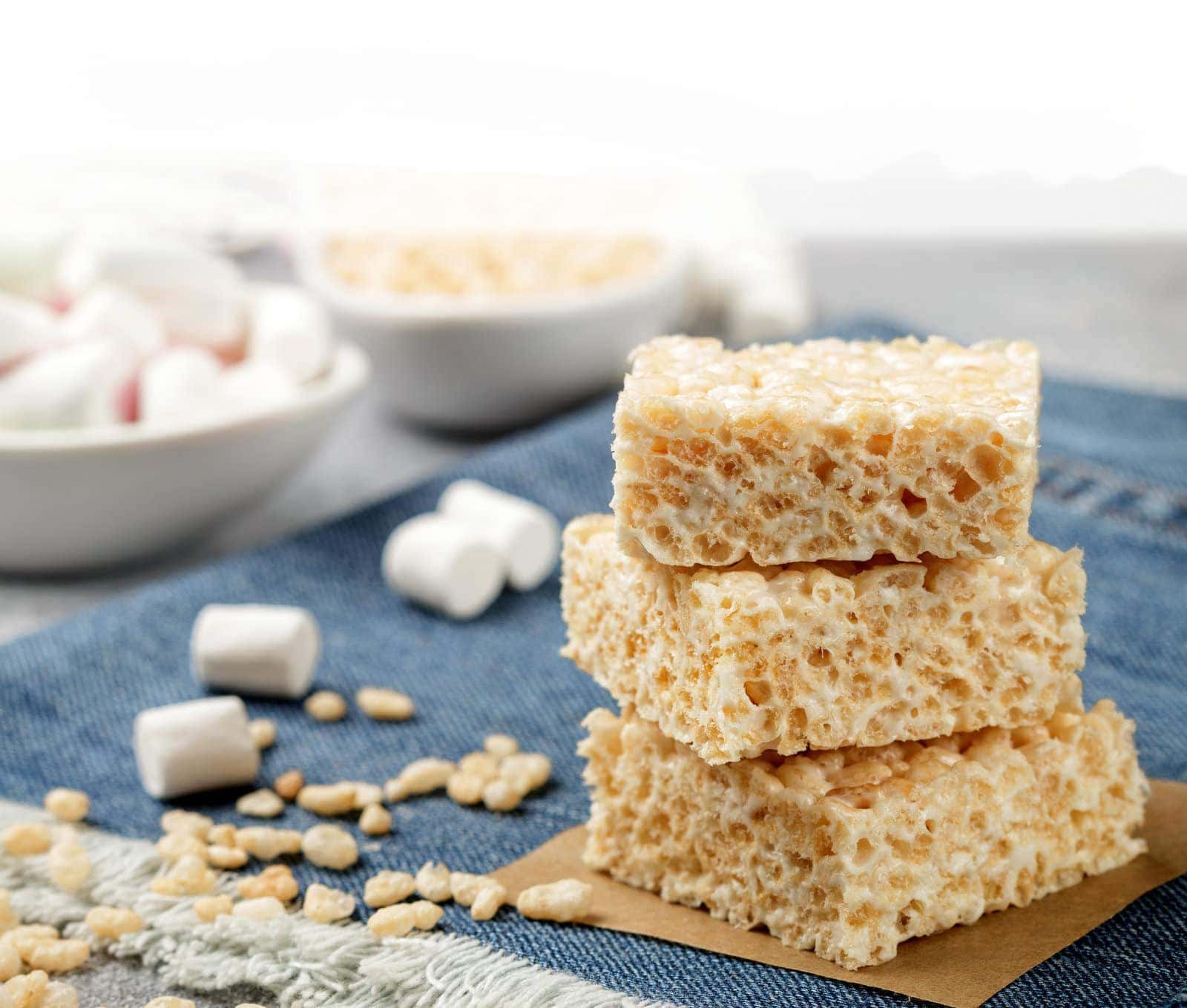
Rice Krispies are a favorite childhood treat. The buttery marshmallow and cereal snack just hit all the right places and is a perfect medley of sweet goodness. Once deemed as junk food, recent viral Tiktok videos suggest otherwise, as consuming Rice Krispies provides visible benefits to your workout session performance. As of today, there are around 223,000 views on the #ricekrispytreatpreworkout hashtag, with more than a hundred Tiktoks on the subject–and it’s not slowing down any time soon. However, is there any truth to these claims? Or is this another dieting fad that will eventually fade? What does science have to weigh in on this new workout tip? Let’s find out.
What’s the Science Behind It?
Rice Krispies are composed of simple carbohydrates from the cereal and sugar found in the snack. Simple carbohydrates are composed of easy-to-digest sugars that naturally occur in fruits, vegetables, and dairy. These carbohydrates are also present in refined sugars such as baked goods and carbonated soft drinks. Because the body quickly digests these sugars through our gut, they can cause a sudden increase in our blood sugar levels.
It’s this blood sugar spike that offers the body an almost instantaneous burst of energy—what we sometimes call a sugar rush. This heightened mood boost experienced by these fitness Tiktokers is called a “workout pump” in authentic Gen Z fitness lingo. This phenomenon somehow explains how fitness enthusiasts see an improved performance in their workout session after chowing down on a Rice Krispies treat.
However, carbohydrate consumption should not be your primary source of energy for any workout or fitness activity. Studies show that sugar rushes eventually lead to sugar crashes, wherein consumers of carbohydrates have experienced an increase in fatigue after thirty minutes of consumption and lowered alertness within sixty minutes after consumption. In addition, regular consumption of sugary food makes one susceptible to hunger, as well as disinhibited, emotional, and unhealthy eating.
Further, we see that Rice Krispies treats are mainly composed of refined sugars. Excessive consumption of refined sugars is correlated with an increased risk for type 2 diabetes and heart disease. Your carbohydrate source should ideally be composed of naturally occurring sugars, with minimal refined sugar intake to maintain a healthy diet.
Should You Eat a Rice Krispies Treat before Your Workout?
The short answer? Yes, but with reservations. While research discourages an excessive consumption of refined sugars, having only one Rice Krispies snack per day will only contribute eight grams of sugar to your daily diet. This is significantly less than the twenty-four grams of sugar limit suggested by the American Heart Association.
This good news does not mean you should be crunching on a whole box of Rice Krispies for an optimal workout. Rice Krispies have a total fat quantity of 2g, 17g of total carbohydrates, 0.7 mg of iron, and 40 mcg of folic acid. What this means is that the snack bar is not necessarily the healthiest source of energy out there.
To effectively get the benefits of your workout, eating clean and maintaining a healthy balanced diet are still the best primary sources of energy that Rice Krispies cannot replace.

What’s the FitnessTok Verdict?
Other fitness Tiktok accounts have since made follow-up videos on the #ricekrispytreatpreworkout hashtag regarding complimentary meals to the diet tip. For example, Adam Katz explains in his TikTok that your Rice Krispies Treat can be paired with a good protein source such as chicken breast or a protein shake and a healthy fat source such as peanut butter or olive oil. Another TikTok influencer (@Ko0maaa) supplemented his viral Rice Krispies Squat Tiktok with his full pre-workout meal composed of chicken, rice, oatmeal, and a pre-workout formula drink. He then only eats a Rice Krispies treat one hour after his meal.
Ultimately, the anecdotal effects of Rice Krispies consumption before fitness activities are indeed very enticing. However, they are far from a miracle food for dietitians, and they are not the most sustainable nor healthiest source of energy if taken daily. So let’s view our Rice Krispies for our diets in their rightful place—as a treat.
Are There Any Alternatives?
The principle of inducing an increased level of blood sugar is not exclusive to Rice Krispies. The same effect can be garnered from eating gummy bears, pop tarts, and other treats you can find in your pantry.
If you are looking for healthier alternatives, consuming fruits with high polyphenol content has enhanced exercise performance. Consider eating an apple, berries, plums, beans, or sweet cherries to give you a natural sugar rush. Other non-fruit options rich in polyphenols include green tea, cocoa, soy products, and nuts.
It is advised that, regardless of whatever you’re eating, you should always eat in moderation. As long as you regulate your refined sugar intake and eat a generally balanced diet, you can enjoy your Rice Krispies treat before (and even after) your workout.
References:
Bajes, H. and Al-Dujaili, E. (2017). Polyphenolic-rich Fruits and Supplements Enhance Exercise Performance; General Review. Jordan Journal of Pharmaceutical Sciences. 10(3), 135-151.
DiNicolantonio, J. et al (2016). The Evidence for Saturated Fat and for Sugar Related to Coronary Heart Disease. Progress in Cardiovascular Disease. 58(5), 464-472. Retrieved on September 18, 2021 from https://www.sciencedirect.com/science/article/abs/pii/S00330620153002563
Healthline. Top Foods with Polyphenols. https://www.healthline.com/health/polyphenols-foods#risks-and-complications
Jeffers, A. et al (2019). Psychological eating factors, affect, and ecological momentary assessed diet quality. Eating and Weight Disorders – Studies on Anorexia, Bulimia and Obesity (25), 1151-1159. https://doi.org/10.1007/s40519-019-00743-3. Retrieved on September 18, 2021 from https://link.springer.com/article/10.1007/s40519-019-00743-3
Johnson, R.K., et al (2009). Dietary sugars intake and cardiovascular health: a scientific statement from the American Heart Association. Circulation. 120:1011-20. Retrieved on September 18, 2021 from https://pubmed.ncbi.nlm.nih.gov/19704096/
Lean, M. and Te Morenga, L. (2016). Sugar and Type 2 Diabetes. British Medical Bulletin, 120 (1), 43-53. https://doi.org/10.1093/bmb/ldw037. Retrieved on September 18, 2021 from https://eprints.gla.ac.uk/130277/
Mantantzis, K. et al (2019). Sugar rush or sugar crash? A meta-analysis of carbohydrate effects on mood. Neuroscience & Biobehavioral Reviews. 101, 45-67. https://doi.org/10.1016/j.neubiorev.2019.03.016. Retrieve on September 18, 2021 from https://www.sciencedirect.com/science/article/abs/pii/S0149763418309175.





0 Comments